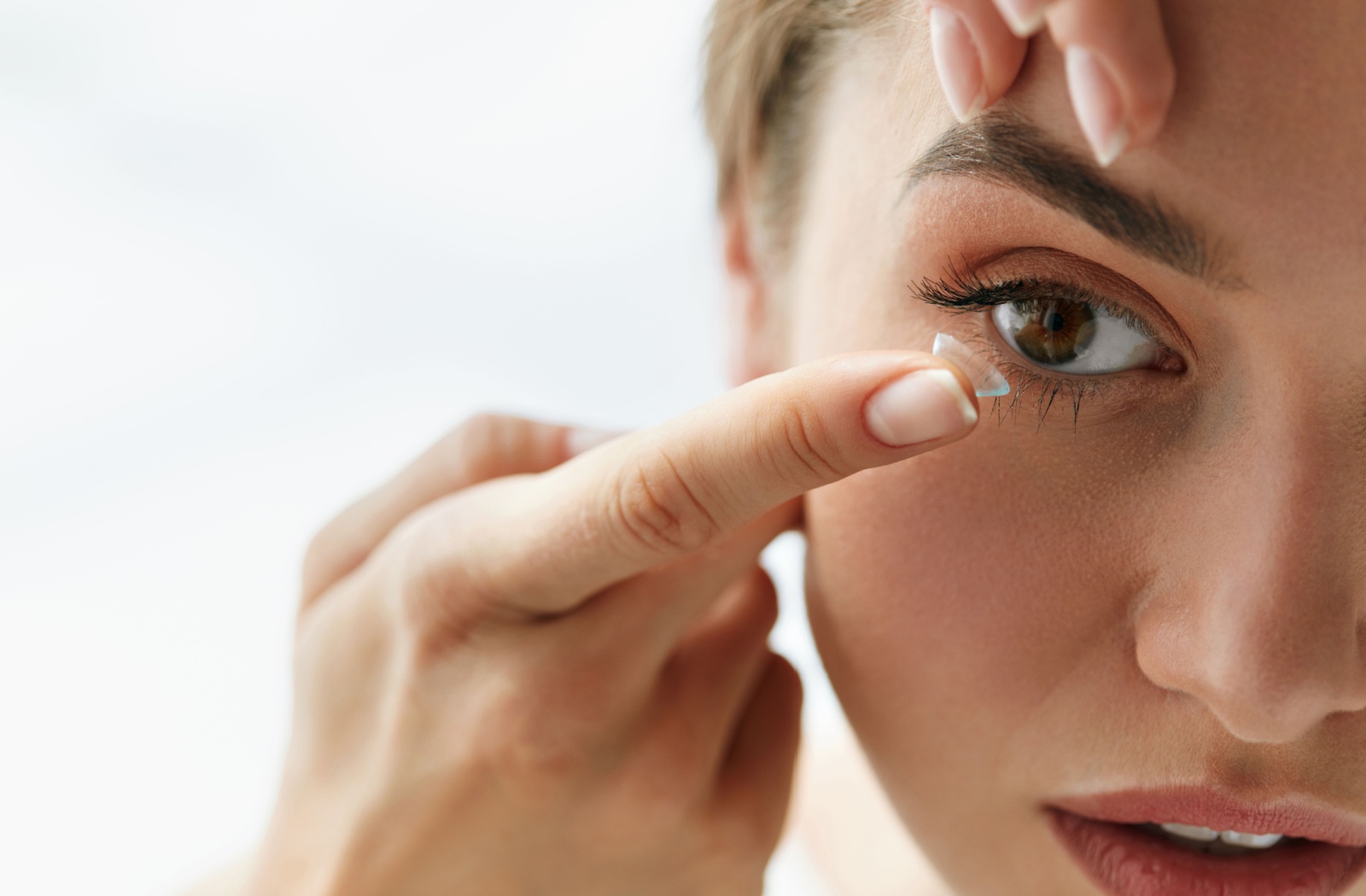In the United States, contact lenses are a popular choice for vision correction among approximately 45 million Americans.
These lenses offer a combination of convenience and comfort, making them a preferred option for many. However, users need to understand the lifespan of their contact lenses and how they can be affected over time.
Unlike food, where an expiration date relates to quality, the expiration date on contact lens packaging is a crucial indicator of the lens’s viability and safety. Adhering to these dates is vital for maintaining eye health.
Contact lenses can expire, and using them after their expiration date can be uncomfortable and even dangerous for your eye health.
At Envision Eye Care, we are here to help you find the right contacts for your needs—we encourage you to begin with an eye exam.
Understanding Expiry Dates
Contact lenses come with an expiry date printed on the packaging, determined by the manufacturer based on factors such as the materials used, manufacturing processes, and sterilization methods. It is crucial to adhere to this expiry date and only use lenses up to that point.
The expiry date serves as a guideline for the lens’s effectiveness and safety. Over time, contact lenses can degrade, affecting their physical properties like flexibility and oxygen permeability. Using expired lenses can increase the risk of eye infections, discomfort, and reduced vision clarity.
Variables Affecting Shelf Life
Several variables can impact the shelf life of contact lenses even before their expiry date:
- Storage Conditions: Proper storage is crucial for preserving the quality of contact lenses. They should remain in their original packaging and be kept in clean, dry, and well-ventilated areas, away from direct sunlight and moisture.
- Handling Practices: Mishandling lenses, such as touching them with unclean hands or using saliva to moisten them, can introduce harmful bacteria and contaminants. This can reduce their shelf life and increase the risk of eye infections.
- Frequency of Use: How often lenses are worn also affects their lifespan. Daily disposable lenses are designed for single use and should not be worn overnight. Extended-wear lenses may last longer but require diligent care and maintenance.
- Cleaning and Disinfection: Following the recommended cleaning and disinfection routine for reusable lenses is essential for extending their shelf life and ensuring eye health. Neglecting proper cleaning and disinfection can lead to microbial buildup and lens deterioration.

Safety Precautions
Using expired or degraded contact lenses can significantly endanger eye health, often leading to conditions that require medical intervention.
When contact lenses expire, the sterility of the lens and the storage solution can be compromised, promoting microbial growth. Contaminated lenses can cause severe eye infections from bacteria, fungi, or protozoa.
Eye Infections
One specific infection is keratitis, an infection impacting the cornea, resulting in redness, pain, excessive tearing, and blurred vision. Severe cases may lead to corneal scarring, potentially requiring a corneal transplant.
Another condition is conjunctivitis (Pink Eye), which involves inflammation of the conjunctiva, the thin, clear tissue covering the white part of the eye. Symptoms include itchiness, redness, discharge, and a gritty sensation. Contaminated lenses can cause bacterial conjunctivitis.
Degradation & Abrasions
Over time, contact lenses can develop tiny cracks or tears, making them rough or abrasive. Wearing these damaged lenses can scratch the cornea, causing discomfort, light sensitivity, redness, and a sensation of something being stuck in the eye. These abrasions increase the risk of secondary bacterial infections, adding further complications.
Reduced Vision Quality
The quality of contact lenses can degrade due to changes in the lens material or the accumulation of microscopic deposits that cleaning cannot remove. These changes can affect how light is focused by the lens, resulting in compromised vision clarity.
Using expired or degraded lenses may lead to blurred vision, increased light sensitivity, burning or stinging sensations, or even double vision. These visual disturbances not only diminish the quality of life but also pose safety hazards, especially while driving or operating machinery.
Preventive Measures
To mitigate these serious risks, it’s crucial to follow the expiration dates set by contact lens manufacturers and replace lenses as recommended by your eye care professional. Maintaining proper lens care, including regular cleaning and storing them in fresh solution, is essential for preserving the integrity and safety of contact lenses.
Regular eye exams are equally important for contact lens users. These exams allow for the early detection and treatment of any potential eye health issues and offer an opportunity for eye care professionals to review and reinforce proper lens care practices.
Prioritizing Eye Health with Proper Contact Lens Usage
Contact lenses have a shelf life, making it essential to adhere to the expiry date provided by the manufacturer. Factors such as storage conditions, handling practices, and cleaning routines significantly influence the lifespan and safety of your contact lenses. By following proper care and maintenance guidelines, you can ensure the longevity of your lenses and protect your eye health.
Regular eye exams and consultations with an eye care professional are crucial for monitoring your eye health and ensuring the appropriate use of contact lenses. Remember, when in doubt, always err on the side of caution and replace your lenses as recommended.
Your eyes deserve nothing less than the best care possible. That’s why we encourage you to book an appointment with us at Envision Eye Care.



